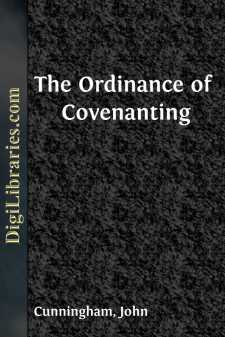Categories
- Antiques & Collectibles 13
- Architecture 36
- Art 48
- Bibles 22
- Biography & Autobiography 813
- Body, Mind & Spirit 142
- Business & Economics 28
- Children's Books 17
- Children's Fiction 14
- Computers 4
- Cooking 94
- Crafts & Hobbies 4
- Drama 346
- Education 46
- Family & Relationships 57
- Fiction 11829
- Games 19
- Gardening 17
- Health & Fitness 34
- History 1377
- House & Home 1
- Humor 147
- Juvenile Fiction 1873
- Juvenile Nonfiction 202
- Language Arts & Disciplines 88
- Law 16
- Literary Collections 686
- Literary Criticism 179
- Mathematics 13
- Medical 41
- Music 40
- Nature 179
- Non-Classifiable 1768
- Performing Arts 7
- Periodicals 1453
- Philosophy 64
- Photography 2
- Poetry 896
- Political Science 203
- Psychology 42
- Reference 154
- Religion 513
- Science 126
- Self-Help 84
- Social Science 81
- Sports & Recreation 34
- Study Aids 3
- Technology & Engineering 59
- Transportation 23
- Travel 463
- True Crime 29
Sort by:
by:
William Godwin
The main purpose of this book is to exhibit a fair delineation of the credulity of the human mind. Such an exhibition cannot fail to be productive of the most salutary lessons. One view of the subject will teach us a useful pride in the abundance of our faculties. Without pride man is in reality of little value. It is pride that stimulates us to all our great undertakings. Without pride, and the secret...
more...
CHAPTER I Rick Brant stretched luxuriously and slid down to a half-reclining, half-sitting position in his dad's favorite library armchair. He called, "Barby! Hurry up!" Don Scott looked up from his adjustment of the television picture. "What's the rush? The show hasn't started yet." Rick explained, "She likes the commercials." A moment later Barbara Brant...
more...
by:
Herbert Hoover
CHAPTER I. Valuation of Copper, Gold, Lead, Silver, Tin, and Zinc Lode Mines.DETERMINATION OF AVERAGE METAL CONTENT; SAMPLING, ASSAY PLANS, CALCULATIONS OF AVERAGES, PERCENTAGE OF ERRORS IN ESTIMATE FROM SAMPLING.The following discussion is limited to in situ deposits of copper, gold, lead, silver, tin, and zinc. The valuation of alluvial deposits, iron, coal, and other mines is each a special science...
more...
by:
Aristotle
Part 1 ...[They were tried] by a court empanelled from among the noble families, and sworn upon the sacrifices. The part of accuser was taken by Myron. They were found guilty of the sacrilege, and their bodies were cast out of their graves and their race banished for evermore. In view of this expiation, Epimenides the Cretan performed a purification of the city. After this event there was contention...
more...
by:
William Richards
RHAGYMADRODD. Mae yr awyddfryd cynyddol sydd yn mhlith y Cymry i ymgydnabod yn fwy â’r iaith Saesoneg yn un o arwyddion gobeithiol yr amserau. Am bob un o’n cydgenedl ag oedd yn deall Saesoneg yn nechreuad y ganrif hon, mae yn debyg na fethem wrth ddyweud fod ugeiniau os nad canoedd yn ei deall yn awr. O’r ochor arall, y mae rhifedi mwy nag a feddylid o’r Saeson sy’n ymweled a’n gwlad...
more...
by:
John Cunningham
CHAPTER I. NATURE OF COVENANTING. A covenant is a mutual voluntary compact between two parties on given terms or conditions. It may be made between superiors and inferiors, or between equals. The sentiment that a covenant can be made only between parties respectively independent of one another is inconsistent with the testimony of Scripture. Parties to covenants in a great variety of relative...
more...
by:
Kate Percival
CHILDHOOD I am about to do a bold thing. I am about to give to the world the particulars of a life fraught with incident and adventure. I am about to lift the veil from the most voluptuous scenes. I shall disguise nothing, conceal nothing, but shall relate everything that has happened to me just as it occurred. I am what is called a woman of pleasure, and have drained its cup to the very dregs. I have...
more...
Are There More Worlds Than One? Our world is large enough to excite our interest and invite our study until we close our eyes in death. Yet there are countless other orbs scattered through the solar system and throughout the vast stretches of the starry heavens. Some of these worlds are smaller than ours, but the majority of them are hundreds or thousands of times larger. Looking away from our solar...
more...
by:
Anonymous
This work, labourious as it may appear, has been to me a labour of love, an unfailing source of solace and satisfaction. During my long years of official banishment to the luxuriant and deadly deserts of Western Africa, and to the dull and dreary half clearings of South America, it proved itself a charm, a talisman against ennui and despondency. Impossible even to open the pages without a vision...
more...
by:
William Morris
FROM THE UPLAND TO THE SEAShall we wake one morn of spring,Glad at heart of everything,Yet pensive with the thought of eve?Then the white house shall we leave.Pass the wind-flowers and the bays,Through the garth, and go our ways,Wandering down among the meadsTill our very joyance needsRest at last; till we shall comeTo that Sun-god's lonely home,Lonely on the hillside grey,Whence the sheep have...
more...











